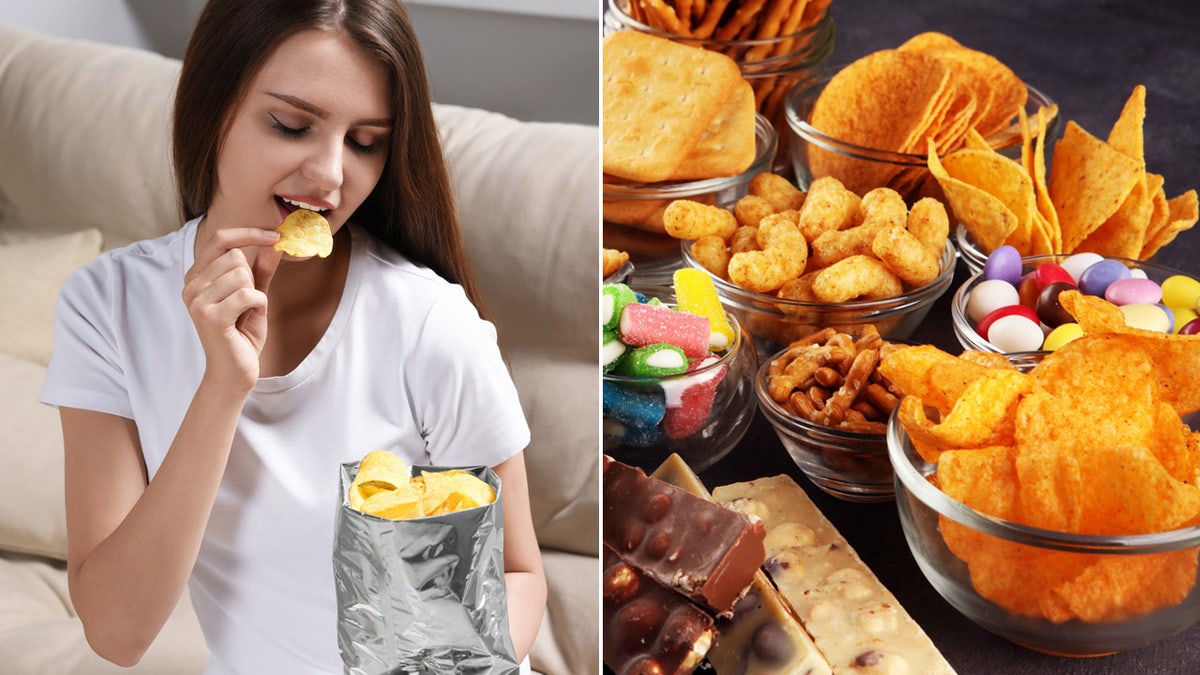Tony Robbins shares tips for following through on New Year's resolutions
Author and life coach Tony Robbins joins 'Fox & Friends' to weigh in after a recent study showed only 9% of Americans complete their resolutions.
New Year's resolutions are notorious for fizzling out over time.
Before the end of January, a once-bustling gym is almost completely deserted. At the beginning, people might opt for a healthy salad or a green shake, but, as their commitment wanes with time, they resort to ordering takeout or settling in for some comfort food on the couch.
Experts say failure to stick to your goals is a byproduct of a flawed mindset, one that, with a bit of change, could lead to lasting success.
"We often fail in achieving and keeping new year’s resolutions because they tend to focus on a specific outcome (e.g., a precise body weight)," Dr. Sabrina Romnaoff, a Harvard-trained clinical psychologist, told Fox News Digital.

Revelers celebrate New Year’s Eve in Times Square on January 01, 2023, in New York City. (Photo by Alexi Rosenfeld/ Getty Images)
"When focus is placed on a specific outcome, it can be challenging to persevere in your efforts toward it if results are not immediate. Goals take time, and many folks become discouraged and eventually relent before attaining the goal…
"Declaring your goals or resolutions may also take the action out of the intent. Sometimes our declaration of intentions become conflated or replaced with the behaviors needed to sustain them. Just speaking of goals does not mean you are coming close to achieving them," she added.
Dr. Romanoff says that falling off the wagon can set you back further, but only if you allow it. Reveling in guilt and failure can lead some to "self-soothe" by continuing to indulge in the negative habits that led them astray in the first place.
Dr. Gregory Jantz, a licensed psychologist who practices in the Seattle area, said it's key to address addiction-related behaviors before committing to making changes.
"If I have addiction on any level of my life, it's a sabotage factor," he told Fox News Digital.
THE NEW YEAR'S RESOLUTION MOST AMERICANS GAVE UP ON AND WHEN

Addiction, whether related to food, alcohol or other substances, is a major obstacle in achieving New Year's resolutions, according to Dr. Gregory Jantz. (iStock)
"People will turn to addiction when things get tough, and we don't tend to address that."
Year after year, the allure of a fresh start entices people to make the same commitments despite the high potential for failure. Both experts agreed this decision is caused by what Dr. Romanoff described as a "punctuation in time," the hope that such fresh starts will usher in new opportunities, including ones for improvement.
"We tend to set resolutions because the New Year serves as a cyclical marker of time during which we re-evaluate and take inventory of our lives. The drive for making resolutions is motivated by this punctuation in time, almost like a yearly graduation into the new year, which activates hope and expectations for what we yearn to achieve going forward," she said.
"Additionally, human beings are planners. This is innate to our survival. Planning and asserting goals are typically the first step to achieving them," she continued.
Dr. Jantz said, despite the eagerness for this fresh start, mental health struggles beyond addiction tend to get in the way of success.
ANGER CAN MOTIVATE PEOPLE TO ACHIEVE THEIR GOALS, NEW STUDY SUGGESTS: ‘SHARPENED FOCUS’

Untreated depression, which carries over the new year, is another culprit behind people's shortcomings on New Year's resolutions. (iStock)
Depression and anxiety, two prevalent mental health diagnoses, are often overlooked as culprits, but pose a genuine risk.
"People want a fresh start. They just don't know how to do it," Jantz said.
"Depression numbers always increase in the first quarter of the year, so our number one diagnosis right now is anxiety and depression," he continued. "There's a lot of issues with anxiety, depression and addiction that will stop us from making the necessary commitment, but we all want that fresh start."
It comes from unresolved struggles from the previous year as people roll that untreated depression into the new year, he said.
Offset by these struggles, people tend to give in to a phenomenon known as hyperbolic discounting, a bias which tells the brain to prioritize short-term wants over long-term rewards.
The Behavioral Lab, a behavioral design thinktank headquartered in Montreal, linked this bias to the eagerness to have what is certain. Long-term goals breed uncertainty. For example, people are unsure whether the sacrifices they make by sticking to their resolution to become fit will yield any benefits in the long run.

Whether it's cutting back on online shopping, alcohol or junk food, many people who make New Year's resolutions tend to give in to their need for instant gratification. (iStock)
Dr. Romanoff echoed that claim, saying these shortcuts yield immediate gratification, including spikes in the brain's satisfaction hormone, dopamine.
"This trait is evolutionary adaptive, as it guarantees the survival of our species. Immediate rewards are usually guaranteed, and in turn propagate survival. Our nervous system therefore has adapted, firing dopamine when we engage in activities that lead to an instant reward. On the other hand, delayed gratification may lead to uncertain rewards," she said.
"This relates to people falling short of their goals as new year’s resolutions tend to be long term, and people usually struggle to maintain motivation for their goals without the instantaneous gratification/cheap dopamine hits that would come from things that are contrary to their goals."
The way around it begins with hacking your reward system to develop a sustainable approach filled with celebration for short-term successes that work toward long-term goals. Both experts agree that celebrating these small successes in a healthy way that pushes you to closer to your goals is the key.
CLICK HERE TO GET THE FOX NEWS APP
"We all love the before and after pictures and go, ‘Okay, how did this person do this?’ Whether it's weight loss or fitness, but we get too detached from the long-term journey," Jantz said.
"We don't build in short-term rewards, and we need to celebrate those."
These short-term rewards could look like buying a workout set after being consistent for several weeks or buying a pair of sneakers after an even longer period of time, Romanoff said, encouraging those hoping to stick to their goals to, "Hold yourself accountable in the process of rewarding yourself so you can trust the reward is coming and the dopamine spike will be worth the hard work and delay in gratification."












































